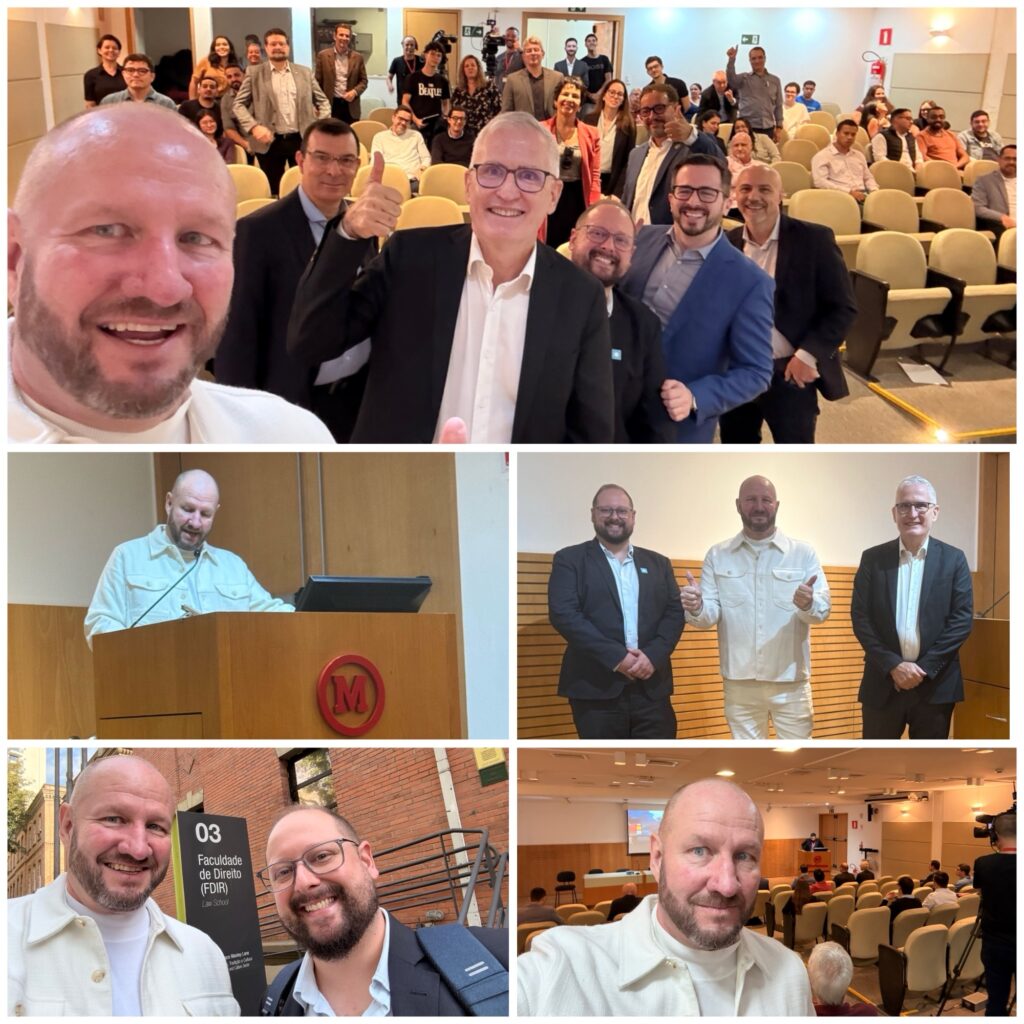Today I gave a guest professor lecture at Mackenzie University in São Paulo. Thank you to Professor Dr. Walter Thomaz and the institution for inviting me.

We had professors, researchers, business representatives and students in the room.
The topic for my lecture was:
’The Future of Customs Compliance Programs – Passports for Goods and Digital Trade Corridors: How to transform trade and tariff wars into opportunities’
Great to see so many peers, colleagues and friends.
Back in the city that never sleeps. São Paulo, the city with most helicopters per capita in the world.

I have been here so many times and it is one of my favourite places in the world.
Would you travel in a driverless bus in the middle of rushhour? I would.
We are the first generation that can transform problems to solutions with technology.

Renault is testing a new driverless mini-bus in Barcelona this week. The autonomous vehicle is running on a 2.2-km (1.3-mile) circular route with four stops in the center of the Spanish city. Adventurous commuters can jump on free of charge.
Commuters in downtown Barcelona have been able to ride the bus for free this week. There’s just one catch: this mini-bus has no one at the wheel.
The bus pulls away from the stop with its passengers on its own, brakes before changing lanes and eases down one of Barcelona’s most fashionable boulevards.
I think this is brilliant (except for bus drivers….).
Check out here: https://lnkd.in/ddwf_3HP






You must be logged in to post a comment.